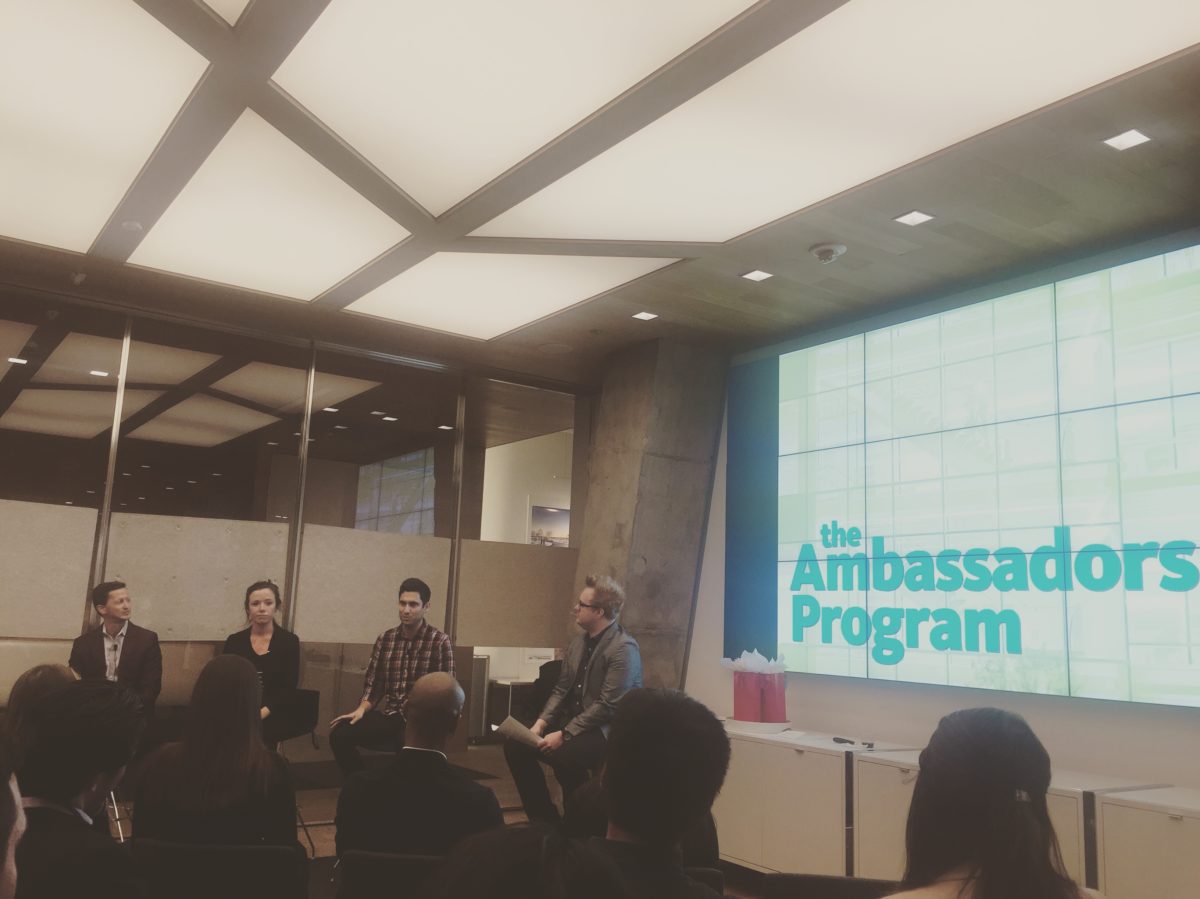On Tuesday evening, some of D.C.’s young professionals and creatives filled the downstairs lobby at Gensler’s K Street office for a happy hour, networking event and panel discussion. There was food, beer and many a cross-industry connection to be made — the evening was part of the design firm’s Ambassador’s Program, an attempt to bring together young professionals working in tech, design and policy.
And that’s precisely the intersection at which the members of the panel sat: John Sikaitis was there from JLL, Annaliese Rosenthal represented Uber and DJ Saul brought marketing wisdom and wild stories from iStrategyLabs. Gensler’s Tom Milavec moderated.
The topic being discussed: How is tech changing D.C.? Here are some things we learned in the course of the ensuing discussion.
1. Millennials — you’re being heard.
- In attempting to explore how tech changes a city, the panelists spoke a lot about how, and why, they see cities practically changing. From the real estate perspective, Sikaitis mentioned general trends that start with the millennial population but ultimately extend way beyond this exact demographic. For example, people today like to have a “sense of place” in their spaces, he said. “A bland, commoditized white box is not going going to attract or retain” today’s residential, retail or office seekers. For its part, obviously, Uber is more interested in how we tend to think about cars. “For a long time cars were a sign of independence,” Rosenthal said, while discussing the promise of autonomous vehicles, “now, especially in cities, they’re sort of a sign of dependence.”
2. Everyone is excited about data.
- We’ll throw it out there — the panelists gathered on Tuesday evening were very different in a lot of ways. But if there’s one thing all three threw hearty support behind it would be the promise of data. All three spoke about how available data (on where people are going, where they are spending money, what they like and dislike) is helping to drive the decisions made at each of the three companies. Saul especially spoke about the need for more data — what can we measure about life in a city that we’re not already measuring? But there’s a flip side to collecting data, of course, and that’s protecting privacy. In all the excitement about what data does for business and customer experience, though, the conversation didn’t really get there.
3. It’s hard to talk about tech and change.
- The overwhelming impression we got from the discussion was that everyone’s willing to understand that tech is changing the city we live in (and will continue to do so), but exactly how is more difficult to pin down. What’s going to happen with virtual and augmented reality? What about self-driving cars? Will technology kill all of our jobs? Who knows! “It’s all so new,” Milavec said, before trailing off to conclude the panel. So new indeed.
Gensler’s next Ambassador’s Program event will take place on Oct. 25, and the conversation will center on how coworking and creative office space have (and will) change the city. Given our recent looks at the various trends in work space, we’re looking forward to it.
Want to join?
RSVP







